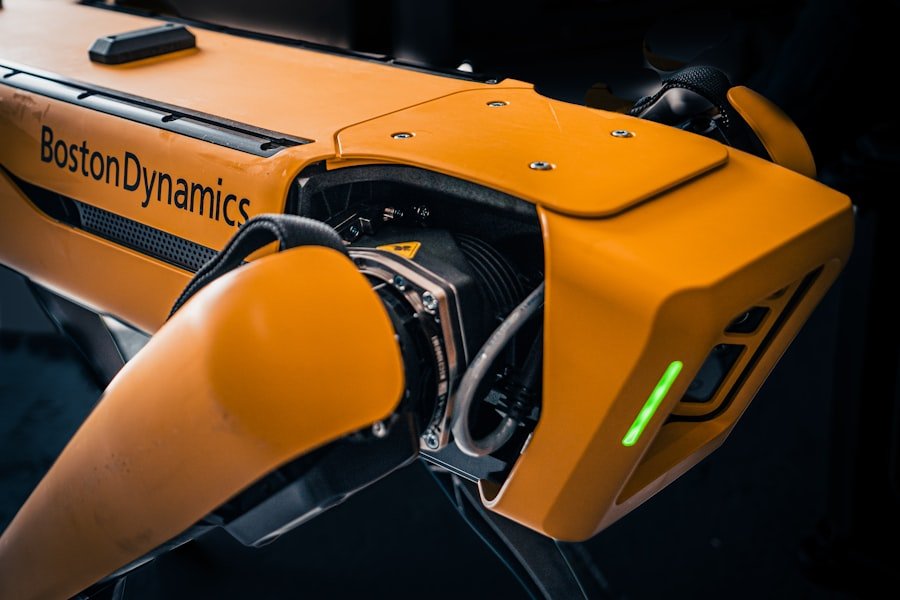Artificial Intelligence (AI) has emerged as one of the most transformative technologies of the 21st century, promising to revolutionise various sectors, from healthcare to finance, and even entertainment. The potential benefits of AI are immense; it can enhance productivity, improve decision-making, and create new opportunities for innovation. However, alongside these advantages lie significant risks that warrant careful consideration.
As AI systems become increasingly integrated into our daily lives, the implications of their use extend beyond mere efficiency gains. The complexity and opacity of AI algorithms can lead to unintended consequences, raising questions about accountability, transparency, and ethical governance. The rapid advancement of AI technologies has outpaced the development of regulatory frameworks and ethical guidelines.
This gap poses a challenge for policymakers, technologists, and society at large. As we stand on the precipice of an AI-driven future, it is crucial to engage in a comprehensive dialogue about the potential risks associated with these systems. From ethical dilemmas to societal impacts, understanding the multifaceted nature of AI risks is essential for harnessing its power responsibly.
The following sections will delve into specific concerns surrounding AI, exploring the ethical implications, biases inherent in algorithms, privacy issues, economic impacts, and the potential for exacerbating inequality.
Summary
- AI has the potential to revolutionise industries and improve efficiency, but it also comes with inherent risks that need to be addressed.
- Ethical concerns in AI development and use include issues such as transparency, accountability, and the impact on human rights.
- Bias and discrimination in AI algorithms can perpetuate and even exacerbate existing societal inequalities and injustices.
- Privacy and security issues in AI systems raise concerns about data protection, surveillance, and the potential for misuse of personal information.
- Job displacement and economic impacts of AI could lead to widespread unemployment and widening income inequality if not managed carefully.
Ethical Concerns in AI Development and Use
The ethical landscape surrounding AI is fraught with complexities that demand rigorous scrutiny. One of the primary concerns is the question of accountability. When an AI system makes a decision that leads to negative outcomes—be it a wrongful arrest due to predictive policing algorithms or a misdiagnosis in healthcare—who is held responsible?
The developers? The users? Or the AI itself?
This ambiguity complicates the establishment of accountability frameworks and raises profound ethical questions about the nature of decision-making in an increasingly automated world. Moreover, the ethical implications extend to the design and deployment of AI systems. Developers often face dilemmas regarding the trade-offs between performance and ethical considerations.
For instance, an AI model designed to optimise for profit may inadvertently prioritise efficiency over fairness, leading to outcomes that harm vulnerable populations. The challenge lies in embedding ethical principles into the design process from the outset, ensuring that considerations such as fairness, transparency, and respect for human rights are integral to AI development. This necessitates a collaborative approach involving ethicists, technologists, and stakeholders from diverse backgrounds to create a more holistic understanding of what constitutes ethical AI.
Bias and Discrimination in AI Algorithms

Bias in AI algorithms is a pressing concern that has garnered significant attention in recent years. These biases often stem from the data used to train AI systems; if the training data reflects historical prejudices or societal inequalities, the resulting algorithms can perpetuate and even exacerbate these issues. For example, facial recognition technology has been shown to exhibit higher error rates for individuals with darker skin tones, leading to discriminatory outcomes in law enforcement and surveillance applications.
Such biases not only undermine the efficacy of AI systems but also raise serious ethical questions about fairness and justice. Addressing bias in AI requires a multifaceted approach that includes diversifying training datasets, implementing rigorous testing protocols, and fostering an inclusive development environment. It is essential for developers to critically assess the data they use and actively seek out diverse perspectives during the design process.
Furthermore, ongoing monitoring and evaluation of AI systems are crucial to identify and rectify biases as they emerge. By prioritising fairness and inclusivity in AI development, we can work towards creating systems that serve all members of society equitably.
Privacy and Security Issues in AI Systems
As AI systems increasingly rely on vast amounts of data to function effectively, concerns surrounding privacy and security have come to the forefront. The collection and processing of personal data raise significant ethical questions about consent and individual rights. Many individuals are unaware of how their data is being used or shared, leading to a lack of informed consent that undermines trust in AI technologies.
Moreover, data breaches pose a substantial risk; when sensitive information is compromised, it can have devastating consequences for individuals and organisations alike. The intersection of AI and privacy also raises questions about surveillance and control. Governments and corporations are leveraging AI technologies for monitoring purposes, often justifying these actions under the guise of security or efficiency.
However, this can lead to invasive practices that infringe upon civil liberties and erode public trust. To mitigate these risks, it is imperative to establish robust data protection regulations that prioritise individual privacy rights while allowing for responsible innovation in AI. Transparency in data collection practices and clear communication about how personal information is used are essential steps towards fostering a more secure and trustworthy AI ecosystem.
Job Displacement and Economic Impacts of AI
The advent of AI technologies has sparked widespread concern regarding job displacement and its economic ramifications. As machines become capable of performing tasks traditionally carried out by humans—ranging from manufacturing to customer service—there is a growing fear that millions of jobs could be rendered obsolete. While some argue that AI will create new job opportunities in emerging fields, the transition may not be seamless or equitable.
Workers in low-skilled positions are particularly vulnerable to displacement, raising questions about how society will support those affected by these changes. Moreover, the economic impacts of AI extend beyond job displacement; they also encompass shifts in wealth distribution and productivity gains. As companies adopt AI technologies to streamline operations and reduce costs, there is a risk that the benefits will disproportionately accrue to a small number of stakeholders—namely, those who own or control the technology.
This concentration of wealth could exacerbate existing inequalities within society, leading to social unrest and economic instability. To address these challenges, policymakers must consider strategies such as reskilling initiatives, social safety nets for displaced workers, and equitable taxation policies that ensure the benefits of AI are shared more broadly across society.
Autonomous Weapons and the Threat of AI in Warfare

The development of autonomous weapons systems represents one of the most alarming applications of AI technology in contemporary warfare. These systems are designed to operate without human intervention, making decisions about targeting and engagement based on algorithms rather than human judgement. The potential for misuse or malfunction raises profound ethical concerns about accountability in armed conflict.
If an autonomous weapon were to cause civilian casualties due to a programming error or misinterpretation of data, determining responsibility becomes exceedingly complex. Furthermore, the proliferation of autonomous weapons could lead to an arms race among nations as they seek to develop increasingly sophisticated military technologies. This escalation poses significant risks not only to global security but also to humanitarian principles that govern armed conflict.
The potential for autonomous weapons to be deployed in ways that violate international law or exacerbate existing conflicts underscores the urgent need for international regulations governing their development and use. Engaging in dialogue among nations about the ethical implications of autonomous warfare is essential for establishing norms that prioritise human oversight and accountability.
The Potential for AI to Exacerbate Inequality
As AI technologies continue to evolve, there is a growing concern that they may exacerbate existing inequalities within society. Access to advanced technologies is often unevenly distributed; wealthier individuals and nations are more likely to benefit from AI advancements while marginalised communities may be left behind. This digital divide can perpetuate cycles of poverty and limit opportunities for social mobility.
For instance, access to quality education increasingly relies on technology; students without access to digital resources may find themselves at a disadvantage compared to their peers. Moreover, the deployment of AI in decision-making processes—such as hiring practices or loan approvals—can reinforce systemic biases that disadvantage certain groups. If organisations rely on biased algorithms without critical oversight, they risk entrenching inequalities rather than alleviating them.
To counteract these trends, it is essential to prioritise inclusivity in AI development and ensure that diverse voices are represented in decision-making processes. By actively working towards equitable access to technology and addressing biases within algorithms, we can strive for a future where AI serves as a tool for empowerment rather than division.
Safeguards and Regulations for AI Development and Use
In light of the myriad risks associated with AI technologies, establishing robust safeguards and regulatory frameworks is imperative for responsible development and use. Policymakers must engage with technologists, ethicists, and civil society organisations to create comprehensive guidelines that address ethical concerns while fostering innovation. These regulations should encompass various aspects of AI development—from data collection practices to algorithmic transparency—ensuring that ethical considerations are embedded throughout the lifecycle of AI systems.
One potential approach is the establishment of independent oversight bodies tasked with monitoring AI deployment across sectors. These bodies could evaluate compliance with ethical standards, conduct audits of algorithms for bias, and provide recommendations for best practices in AI development. Additionally, fostering public awareness about AI technologies can empower individuals to advocate for their rights and hold organisations accountable for their use of these systems.
By prioritising transparency, accountability, and inclusivity in regulatory efforts, we can work towards an AI landscape that aligns with societal values while harnessing its transformative potential responsibly.
In a recent article discussing the risks and challenges of AI, it is evident that businesses must carefully consider the implications of implementing artificial intelligence technologies. This is further highlighted in a related article on the business case for investing in rail, where strategic decision-making is crucial for long-term success. Just as with AI, investing in rail infrastructure requires a thorough understanding of potential risks and challenges to ensure a positive outcome. Both articles emphasise the importance of careful planning and consideration when implementing new technologies or strategies in business.
FAQs
What are the risks and challenges associated with AI?
There are several risks and challenges associated with AI, including job displacement, bias in decision-making algorithms, privacy concerns, and the potential for autonomous weapons.
How does job displacement relate to AI?
AI has the potential to automate many jobs, leading to job displacement for workers in various industries. This can have significant economic and social implications.
What is bias in decision-making algorithms?
Bias in decision-making algorithms refers to the tendency for AI systems to produce results that are systematically prejudiced in favour of certain groups or against others. This can lead to unfair outcomes in areas such as hiring, lending, and criminal justice.
What privacy concerns are associated with AI?
AI systems often rely on large amounts of data, raising concerns about the privacy and security of personal information. There is also the potential for AI to be used for surveillance and monitoring purposes.
What are the potential risks of autonomous weapons?
The development of autonomous weapons powered by AI raises concerns about the potential for these weapons to make life-and-death decisions without human intervention, leading to ethical and legal challenges.
